12 low alcohol wines so you can enjoy a glass or two without a fuzzy head in the morning
These natural low alcohol wines taste great and have a lower ABV than traditional wine


Low alcohol wines are ideal for anyone looking to cut back on their alcohol intake or even give up booze for good. While many non-drinkers like to stick to soft drinks only, having a lower-alcohol glass of wine is one way others have been able to keep enjoying the drink.
Thanks to mindful drinking and sober-curious movements in the last few years, there's more interest in low alcohol wine than ever before with classic brands and new initiatives being set up to offer customers their favorite tipple - without the risk of a heavy head the next day.
This means low alcohol wines have come a long way in recent years, going from being specialty produce to essential stock on the shelves of most mainstream grocery stores for anyone looking to enjoy the benefits of not drinking alcohol to the same extent, or the lowest calorie alcohol. It's great news for wine drinkers but it means the range of choice is huge. To help you find the right one, we've consulted Tim Atkin, a master of wine with over 30 years of experience in the industry, and rounded up some of the very best.
What are low alcohol wines?
Low alcohol wines, Atkin explains, vary in alcohol level from 20% (for port) to 5.5% (for Moscato d'Asti). Most wines tend to have between 12 and 14% ABV so while this may seem relatively high still, it's lower than standard. "Levels have crept up in recent years, partly because of climate change, but also because of a prevailing taste for softer, riper wines," he says.
You can also buy zero-alcohol wine, like Oddbird Domaine de la Prade Merlot Shiraz or Oddbird Rosé, if you don't want any alcohol at all. But if taste and a more authentic experience are what you're after, and you're just looking to try more mindful drinking approaches, opt for lower-alcohol wines as these haven't been manipulated. "Choose wines that are naturally low in alcohol as opposed to manipulated ones," suggests Atkin.
It takes a bit of work to track down these low alcohol wines, especially ones with less than 13% ABV, but it can be done.
Best low alcohol wines UK
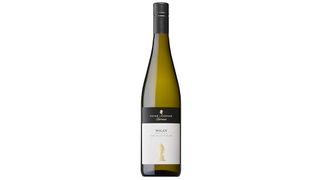
Aussie Riesling is one of the most underrated low alcohol wines in the world and this is a lip-smacking, dry example from a winery that never lets you down. The favors are dominated by notes of lime and wet stones with lots of breezy acidities. Zesty, crisp, and tangy, this will age well too. Try it with a seafood salad. 11%.
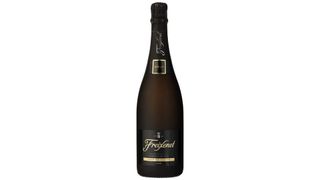
As well as being comparatively low in alcohol, this Spanish fizz has to be the best value bubbly in the UK right now. Fresh, yeasty and slightly peppery, it looks as good as it tastes. Dry and refreshing with impressively small bubbles. 11%.

Crisp and fresh from northern Portugal this is a great example of Vinho Verde. Light, medium dry and with a slight sparkle it makes a fantastic accompaniment to fresh seafood and lighter dishes. 11.5%.

From the Rheinhessen area of Germany you'll find this white a great example of medium dry Riesling. Packed with green apple and lime it has a real hit of citrus fruit, a great match for light Asian dishes. Rounded off with soft and fruity notes makes this easy drinking. 9%.
Best low alcohol wines US
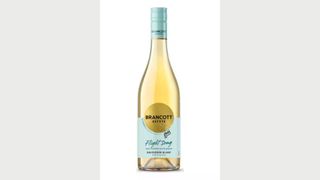
The Brancott Estate harvest these grapes earlier in the season to create a naturally lower alcohol wine. It's still full of tropical fruit flavours and the refreshingly floral notes you find in the higher percentage alcohol versions. 9%.
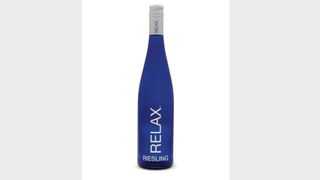
Another wonderful example of a refreshing, crisp Riesling wine. With hints of citrus among the fruity bouquet of apples and peaches, it's a dry white that pairs perfectly with cheese. 9%.
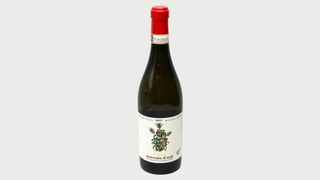
The Vietti Moscato d'Asti is one of the lowest alcohol wines we've seen. With a slight fizz and pale yellow in color, this Moscato has strong notes of peaches, rose petals and ginger. 5%.

This Vinho Verde has delicious notes of citrus, salt and a hint of sweet grass. Paired best with meat and fish for an authentic Portuguese experience. Naturally organic, it's a little higher in ABV than some of the others on the list but easily one of the best on the list. 12%.
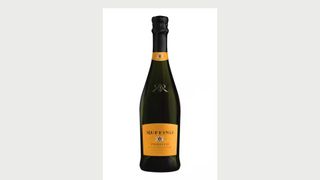
Coming from the hilly region of hilly area of Valdobbiadene in Italy, this sparkling wine is clean, crisp and delicate with intense flavors of apples, pears, and peaches with floral finishing notes. Best paired with fish and white meat dishes. 11%.
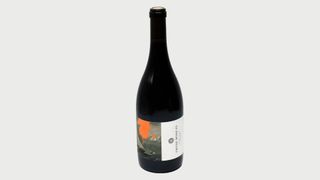
A Californian red with strong notes of crushed strawberries and bramble, with base notes of olive and leather. 12.5%. Vibrant and bright in color with rich burgundy tones, this is one of the best red low alcohol wines as it has a strong structure with plenty of flavor.
Is low alcohol wine better for you?
Yes, while there's no such thing as healthy alcohol, low alcohol wines are better for you than wine with a higher ABV. Not only is wine with a lower alcohol percentage one of the best alternatives to alcohol at full strength, since it still tastes the same as full-percentage wine, research from Institut de Recerca Hospital in Barcelona found that those who drank limited to moderate amounts of alcohol were between 25 and 30% less likely to develop cardiovascular disease and other adverse health conditions, including type 2 diabetes.
Sign up for the woman&home newsletter
Sign up to our free daily email for the latest royal and entertainment news, interesting opinion, expert advice on styling and beauty trends, and no-nonsense guides to the health and wellness questions you want answered.
Alcohol is also one of the biggest contributors to inflammation, says Pauline Cox, functional nutritionist and health consultant. "Ethanol is the end-product of fermenting carbohydrates," she explains, and wine tends to contain more ethanol than other types of alcohol due to the natural sugar in grapes. "1.5oz shot of an 80-proof hard spirit will give you 120 calories for example. 12 of those calories are metabolized within the stomach and intestine and a further 10% is metabolized in the brain, which causes the intoxicating effects. This means approximately 96 calories make it to the liver."
Ethanol then causes an inflammatory reaction in your liver, she says, and it's one of the reasons why many people are considering what happens when you give up alcohol for good. "The body quickly uses up its stores of the power antioxidant glutathione to combat damage. Ethanol does not get metabolized into glycogen and instead goes straight into the mitochondria with any excess being turned straight into fat and stored in the liver."
When excessive amounts of fat are made and the liver becomes more fatty, the fat begins to deposit in the skeletal muscle, in and around the organs. "Alcholic fatty liver progresses," Cox explains, "And that's just from 1.5oz of alcohol. Imagine the effects of mixers and juices on a regular basis!"

Grace Walsh is woman&home's Health Channel Editor, working across the areas of fitness, nutrition, sleep, mental health, relationships, and sex. She is also a qualified fitness instructor. In 2025, she will be taking on her third marathon in Brighton, completing her first ultra marathon, and qualifying as a certified personal trainer and nutrition coach.
A digital journalist with over seven years experience as a writer and editor for UK publications, Grace has covered (almost) everything in the world of health and wellbeing with bylines in Cosmopolitan, Red, The i Paper, GoodtoKnow, and more.
-
 Carole Middleton and Royal Family’s conflicting traditions over mealtimes with George, Charlotte and Louis
Carole Middleton and Royal Family’s conflicting traditions over mealtimes with George, Charlotte and LouisCarole Middleton and the Royal Family have quite different approaches when it comes to mealtimes for the younger generations
By Emma Shacklock Published
-
 Chic genes: The best celebrity mother-daughter fashion moments
Chic genes: The best celebrity mother-daughter fashion momentsFrom matching outfits to recycling iconic looks decades later, these mother-daughter duos dominated the red carpet
By Jack Slater Published

